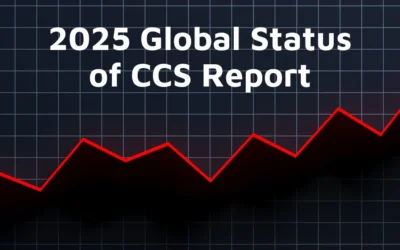Methane (CH4) is a highly potent greenhouse gas, significantly more effective at trapping heat than carbon dioxide. Methane emissions reduction is critical for slowing the pace of global warming, as methane has 80 times the warming power of CO2 over a 20-year period. Recent studies, such as the September 2024 research from Stanford University, show that methane emissions are rising faster than ever, primarily driven by human activities in agriculture, fossil fuel extraction, and waste management.
Reducing methane emissions presents a unique opportunity to make rapid climate gains due to methane’s relatively short atmospheric lifespan (about 12 years). One of the most promising methods for achieving methane emissions reduction is through the use of biochar, a carbon-rich material created by heating organic matter in the absence of oxygen (pyrolysis). Biochar not only sequesters carbon but also mitigates methane emissions from agriculture and waste systems, offering a powerful tool for tackling both methane and carbon simultaneously.
Major Sources of Methane Emissions
Methane emissions come primarily from:
- Agriculture: Livestock digestion and rice cultivation are responsible for around 40% of global methane emissions. The anaerobic conditions in waterlogged soils, such as those found in rice paddies, foster methane-producing bacteria (methanogens).
- Fossil Fuels: Oil, natural gas, and coal extraction contribute approximately 36% of methane emissions, often due to leaks during production and transportation.
- Waste Management: The decomposition of organic waste in landfills accounts for about 17% of global methane emissions.
How Biochar Supports Methane Emissions Reduction
Biochar offers a range of benefits in methane emissions reduction efforts, particularly when applied to agriculture and waste management systems:
1. Agriculture
In agricultural applications, biochar reduces methane emissions from rice paddies and other waterlogged fields by altering the microbial balance. It suppresses the activity of methane-producing bacteria while promoting the growth of methane-oxidizing bacteria (methanotrophs). This process reduces methane emissions from soils while improving crop yields and soil health.
2. Waste Management
Landfills and organic waste facilities are significant contributors to methane emissions due to the anaerobic breakdown of organic materials. When biochar is added to waste systems, it stabilizes the material, improves aeration, and absorbs methane, leading to a reduction in methane emissions. Additionally, biochar promotes the activity of microbes that help break down waste without releasing methane.
3. Carbon Sequestration
Beyond its impact on methane, biochar sequesters carbon in a stable form that can remain in soils for centuries. This creates a long-term solution for reducing overall greenhouse gas concentrations while also enhancing soil fertility, water retention, and resilience in agricultural systems.
Dynamic Carbon Credits: A Holistic Approach to Methane Emissions Reduction
Dynamic Carbon Credits is pioneering a sustainable approach to methane emissions reduction through biochar-based carbon sequestration. By integrating biochar into sustainable agricultural practices, Dynamic Carbon Credits supports a circular economy in which organic waste is converted into biochar, creating a closed-loop system that reduces methane emissions and sequesters carbon.
Here’s how Dynamic Carbon Credits implements biochar to support methane emissions reduction:
- Crop Growth: Sustainable farming practices prioritize growing crops that serve both food production and biochar creation. Crop residues are then used in biochar production, reducing waste.
- Biochar Production: Through pyrolysis, agricultural byproducts are converted into biochar, locking carbon into a stable form and preventing it from returning to the atmosphere as methane or carbon dioxide.
- Soil Application: The biochar is applied to fields, reducing methane emissions from agricultural soils while improving soil health and water retention. This not only mitigates methane but also enhances crop productivity.
Methane Emissions Reduction: The Path Forward
Reducing methane emissions is one of the most effective short-term strategies for mitigating climate change. The Stanford University study illustrates the urgent need for immediate action, given the record-breaking rise in methane emissions since 2020. Biochar offers a viable solution for methane emissions reduction by addressing key sources of emissions in agriculture and waste management while simultaneously sequestering carbon.
Through initiatives like Dynamic Carbon Credits, companies and governments can adopt biochar-based strategies to significantly reduce methane emissions, enhance soil quality, and contribute to global carbon sequestration efforts. The combination of immediate methane reduction and long-term carbon storage makes biochar a crucial tool for meeting climate targets and promoting sustainable agricultural systems.
For further insights on methane emissions and solutions, refer to the latest Stanford University study.





